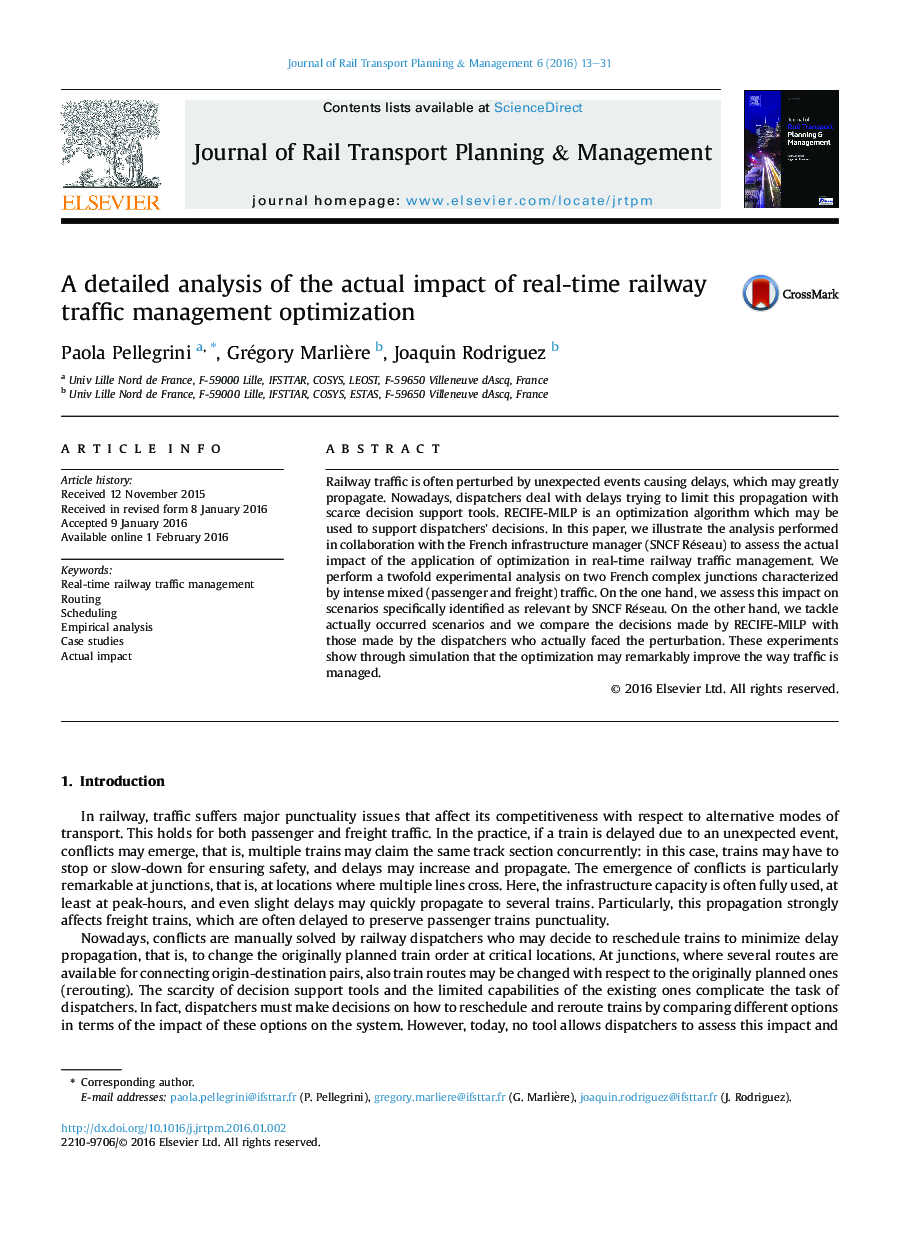| Article ID | Journal | Published Year | Pages | File Type |
|---|---|---|---|---|
| 286408 | Journal of Rail Transport Planning & Management | 2016 | 19 Pages |
•We assess the performance of RECIFE-MILP on two French case studies.•We compare its performance with the currently preconized strategy and with the FCFS.•We also compare RECIFE-MILP to the actual dispatcher's decisions.•RECIFE-MILP outperforms all the other strategies.•We discuss how the use of optimization may impact the freight railway transport.
Railway traffic is often perturbed by unexpected events causing delays, which may greatly propagate. Nowadays, dispatchers deal with delays trying to limit this propagation with scarce decision support tools. RECIFE-MILP is an optimization algorithm which may be used to support dispatchers' decisions. In this paper, we illustrate the analysis performed in collaboration with the French infrastructure manager (SNCF Réseau) to assess the actual impact of the application of optimization in real-time railway traffic management. We perform a twofold experimental analysis on two French complex junctions characterized by intense mixed (passenger and freight) traffic. On the one hand, we assess this impact on scenarios specifically identified as relevant by SNCF Réseau. On the other hand, we tackle actually occurred scenarios and we compare the decisions made by RECIFE-MILP with those made by the dispatchers who actually faced the perturbation. These experiments show through simulation that the optimization may remarkably improve the way traffic is managed.
